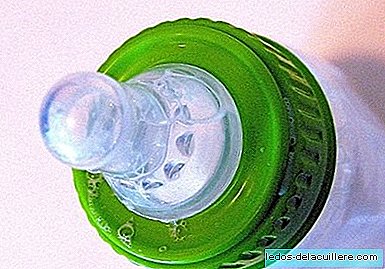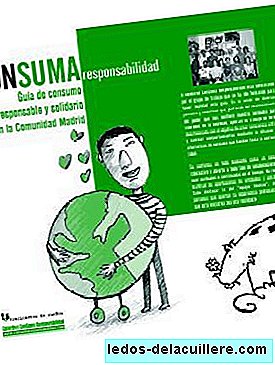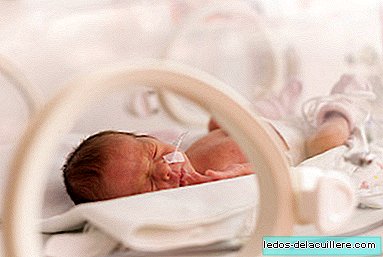
Although, as we have already commented widely, bisphenol A is no longer used in Europe to manufacture bottles due to the danger of toxicity, we want to leave some general advice on bottles and bisphenol A for all those who have previous bottles or who live in other countries where it is possible (yet) to find bottles of this type.
Remember that bisphenol-A (commonly abbreviated as BPA) is a chemical contained in polycarbonate that is used to harden plastic and make bottles, bottles and food packaging. A chemical agent that could be harmful to health in certain circumstances, according to various research from around the world.
Some countries consider this element to be a toxic (for example, Canada), and we know that its use has also been banned in various countries due to the risks involved when plastic reaches high temperatures.
According to available studies, BPA can have negative effects on the organism, especially in a developing organism such as the child's, affecting the endocrine system, its defenses and the appearance of tumors.
Therefore, the European Union (EU) agreed to ban plastic bottles carrying BPA and other plastic objects intended to come into contact with food. The import into the European Union is also banned.
General advice on bottles and bisphenol-A
Although bottles marketed in Spain as of March 2011 must be BPA free (in the Official State Gazette of March 25, this regulation is included), during the early stages some tips may be useful, especially if we have old bottles at home or if we live in a place where the ban has not been established:
It is convenient to read the labels and use bottles that indicate that they do not contain BPA.
A number indicating the type of plastic used in the product appears on the plastic containers. Polycarbonate has the number 7, although there is polycarbonate with and without BPA.
In opaque plastic bottles, other materials that do not contain BPA are used.
Glass bottles do not contain BPA, although care must be taken when using them as they can break (an option may be to use protectors).
If for some reason it is necessary to use bottles containing BPA it is advisable: do not boil them, do not put them in the microwave, or wash them in the dishwasher, since heat can free plastic BPA.
In short, we hope that these general advice on bottles and bisphenol A they are useful to know if you are using a suitable bottle and the best way to handle it to avoid the risks of bisphenol in the event that it contained this chemical agent as a plastic component.












